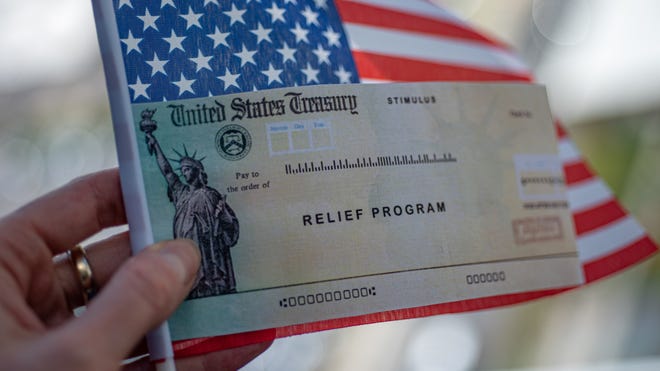
WASHINGTON – The House of Representatives is poised this week to pass President Joe Biden's $1.9 trillion COVID-19 relief plan with $1,400 checks, billions for vaccines, and money to reopen schools.
The Senate passed the bill over the weekend after a marathon session. Once the House has passed the legislation, it will go to Biden for his signature, and then stimulus checks will start to go out in a matter of weeks.
Here's where the stimulus bill stands ahead of its likely passage this week:
When will the House pass the bill?
The House is expected to pass the bill this week and as early as Tuesday evening. The House Rules Committee must first set the parameters for debate, and then the House must vote to approve the rules of debate.
Once the House approves the rules for debate, lawmakers will first debate the bill and then vote on final passage, which could happen late in the night Tuesday.
Biden said Monday that he would sign the legislation "as soon as I get it."
Save better, send better:Money tips and advice delivered right to your inbox. Sign up here
Does the House have the votes to pass the bill?
The House very likely will pass the bill. House Democratic leadership has voiced confidence in their ability to pass it even if no Republicans vote for it.
"We'll pass it, and it'll get signed into law by the 14th," Rep. Pete Aguilar, D-Calif., a member of House Democratic leadership, told reporters Monday. Democrats are aiming for that March 14 date because that's when a federal boost to unemployment benefits expires for millions of Americans.
Democrats hold a slim majority in the House and can't lose more than four Democrats on the final vote, assuming all Republicans vote against it.
Although some progressives have voiced complaints about changes made by the Senate, Progressive Caucus Chair Rep. Pramila Jayapal, D-Wash., told reporters Monday that the package "hits all of our progressive priorities" and that the Senate's changes to the bill were "relatively minor in the grand scheme of things."
Some progressives were concerned too many concessions had been made to moderate Democrats in the Senate, such as tightening the threshold for stimulus checks and lowering the weekly unemployment benefit to $300 a week.
Rep. Bonnie Watson Coleman, D-N.J., told USA TODAY she was considering "making a statement" once the bill came up for a House vote and voting against it because of all of the progressive priorities that had been pared from the bill, such as an increase in the minimum wage.
"We spent a lot of time listening to the Senate nickel-and-dime what was going into the bill," she said.
"As progressives," she said, "we're going to have to figure out where the line in the sand is."
Two Democrats from the party's conservative wing voted against the bill when it first passed the House at the end of February, but one of the lawmakers, Rep. Kurt Schrader, D-Ore., said Monday he would vote for the final package.
The bill passed the House already. Why does it have to vote on it again?
The House first passed the bill at the end of February. The Senate took it up the next week, and it made changes to the bill's provisions. A key Senate official, the parliamentarian, ruled that a provision increasing the federal minimum wage to $15 an hour could not stay in the final legislation, for example.
The Senate also lowered the unemployment benefit to $300 a week, down from $400 in the first version of the legislation the House passed, but extended it through the beginning of September, and made the first $10,200 of unemployment benefits non-taxable for households making less than $150,000.
The changes mean the House had to pass the bill again. If the House does not make any changes of its own, then the bill can go straight to Biden for his signature.
When will I get a stimulus check?
Once the bill is signed into law, $1,400 stimulus checks could start going out in a number of weeks if they follow the same timeline as previous rounds.
White House press secretary Jen Psaki said Monday that the Biden administration was still working through the "mechanics" of sending out checks.
Under changes made by the Senate, most Americans earning up to $75,000 would receive a full payment, and those earning between $75,000 and $80,000 would receive a partial payment. The payments phase out for those earning above $80,000. Unlike previous rounds of checks, adult dependents would receive a full $1,400 payment.
More:$1,400 checks could start arriving within weeks under latest COVID-19 relief package
Contributing: Michael Collins
Source link







